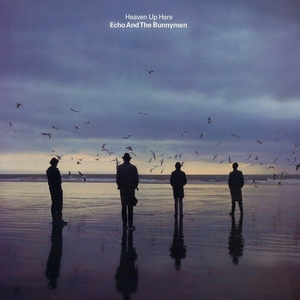
Heaven Up Here is the second album by the English post-punk band Echo & the Bunnymen, released on 30 May 1981. In June 1981, Heaven Up Here became Echo & the Bunnymen's first Top 10 release when it reached number 10 on the UK Albums Chart. It was also the band's first entry into the United States album charts when it reached number 184 of the Billboard 200. The songs "A Promise" and "Over the Wall" were released as singles.

Changes is the ninth studio album by the Monkees. The album was issued after Michael Nesmith's exit from the band, leaving only Micky Dolenz and Davy Jones to fulfill the recording contract they had signed in the mid-1960s. Changes was their last new album for Colgems Records and the group's last album of all new material until Pool It!, released in 1987.

Pool It! is the tenth studio album by American pop rock band the Monkees, released in August 1987 by Rhino Records. It was the first Monkees studio album of new material since Changes in 1970 and the first Monkees album to feature Peter Tork since the 1968 Head soundtrack.
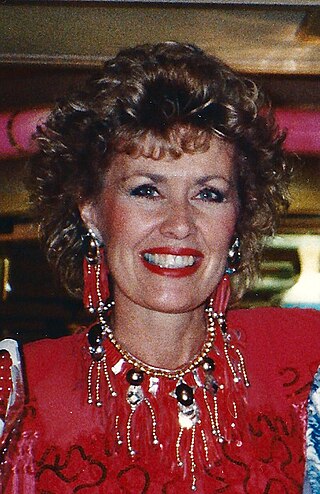
Jane Marie Fricke, known professionally as Janie Fricke, is an American country music singer, songwriter, record producer, and clothing designer. She has placed seventeen singles in the top ten of the US Billboard Hot Country Songs chart. Eight of these songs reached the number one spot on the Country music chart. She has also won accolades from the Academy of Country Music, Country Music Association and has been nominated four times from the Grammy Awards.

"Don't Know Why" is a song written and composed by Jesse Harris that originally appeared on his 1999 album, Jesse Harris & the Ferdinandos. A cover of the song was the debut single of American singer Norah Jones from her debut studio album, Come Away with Me (2002).

"I Love Saturday" is a song by English synth-pop duo Erasure, released as the third single from their sixth studio album, I Say I Say I Say (1994), on 18 November 1994 in Japan. The track was written by Vince Clarke and Andy Bell, and produced by Martyn Ware. In the United Kingdom, Mute credited the first CD single as the I Love Saturday EP, which contains several new tracks; it was released on 21 November 1994.
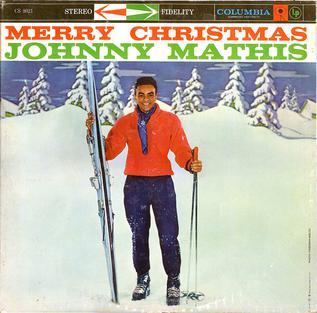
Merry Christmas is the first Christmas album by American pop singer Johnny Mathis and was released by Columbia Records on October 6, 1958. The selections are a mix of traditional Christmas carols and holiday hits.

The Cat is a 1964 album by Jimmy Smith. It features Smith on Hammond B-3 organ with big band arrangements by composer Lalo Schifrin. The album reached number 12 on the Billboard 200 chart.

"Shimmer" is a song by American alternative rock group Fuel. It was released in May 1996 as part of their third EP Porcelain and later on as lead single from their debut album Sunburn.

The albums discography of American singer–songwriter Emmylou Harris contains 28 studio albums: 22 of which were solo releases while six were released collaboratively with other artists. Her albums discography also includes 15 compilation albums, five live albums, one soundtrack album, four video albums and two box sets. Harris's first studio album Gliding Bird was released in 1969 by Jubilee Records.

Cool Struttin' is an album by jazz pianist Sonny Clark that was released by Blue Note Records in August 1958. Described as an "enduring hard-bop classic" by The New York Times, the album features alto saxophonist Jackie McLean, trumpeter Art Farmer and two members of the Miles Davis Quintet, drummer Philly Joe Jones and bassist Paul Chambers. According to The Stereo Times, the album enjoys "a nearly cult status among hardcore jazz followers", a reputation AllMusic asserts it deserves "for its soul appeal alone".

"Maybe Tomorrow" is a song from Welsh rock band Stereophonics' fourth studio album, You Gotta Go There to Come Back (2003). Written and produced by Stereophonics frontman Kelly Jones, the song was released as a single on 21 July 2003 and peaked at number three on the UK Singles Chart. It also charted in several other countries, including the United States, where it reached the top five of the Billboard Adult Alternative Songs chart.

"A Little Bit Me, a Little Bit You" is a song written by Neil Diamond, recorded by the Monkees in 1967 and released as a single on the Colgems label. The lead vocal was Davy Jones' first on a Monkees single. The single reached No. 1 on the Cashbox Top 100 chart, while on the Billboard Hot 100 it reached No. 2, with "Somethin' Stupid" by Frank Sinatra and Nancy Sinatra keeping it from the top spot.

The discography of American country music singer–songwriter, Pam Tillis, contains 14 studio albums, six compilation albums, one video album, 45 singles, 25 music videos and has appeared on 11 albums. Tillis's career was launched on the Warner Bros. label, where she releases several unsuccessful singles and her debut studio album: Above and Beyond the Doll of Cutey (1983). Through Arista Nashville, her second studio album was released in January 1991 titled Put Yourself in My Place. The disc was her first commercial success, reaching number ten on America's Billboard Top Country Albums chart, number 69 on the Billboard 200 and number 12 on Canada's RPM country chart. The disc also certified gold in both countries and spawned five charting singles. Of these releases, "Don't Tell Me What to Do", "One of Those Things" and "Maybe It Was Memphis" reached the top ten of the Billboard Hot Country Songs chart. In September 1992, her third studio album was released called Homeward Looking Angel. The disc certified both gold and platinum in North America, while also spawning the Billboard and RPM top ten singles "Shake the Sugar Tree" and "Let That Pony Run".

Your Good Girl's Gonna Go Bad is a studio album by American country artist Tammy Wynette. It was released in May 1967 and contained ten tracks. The majority of the album was a collection of cover tunes Wynette recorded, including songs by George Jones, Loretta Lynn and Jeannie Seely. Several new songs were also part of the project. It was the debut studio album of Wynette's career and included two singles: "Apartment No. 9" and "Your Good Girl's Gonna Go Bad". The latter became Wynette's first chart success, climbing into the top five of the American country chart. The album itself reached the American country LP's chart in 1967. The album later received a positive review from AllMusic, which gave it a five-star rating.

Bon Voyage is the eleventh studio album by Japanese recording artist Kumi Koda. It was released on February 26, 2014, by Rhythm Zone. Bon Voyage is Koda's first album since her 2012 Japonesque, and her longest album in production since her 2008 studio album Kingdom. The album's production was handled by several music producers, such as Joseph Lawrence, Toby Gad, T-Sk, Mats Lie Skare, Figge Bosstrom, Tommy Henriksen, Badur Haberg, and Clarabell. It also features guest appearances from Sean Paul and OVDS. Five different formats were released to promote the album: a standalone CD, a CD and DVD bundle, a CD and Blu-ray bundle, a fan package featuring a live DVD, and a digital release in Japan.
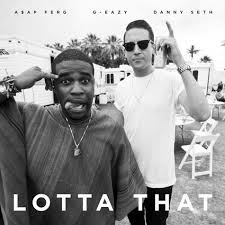
"Lotta That" is a song by American rapper G-Eazy. It was released on June 10, 2014, as the sixth single from his debut studio album These Things Happen (2014). The song was produced by Eazy himself and Christoph Andersson. It also features guest appearances from American rapper ASAP Ferg and English rapper Danny Seth.
"Do It in the Name of Love" is a song written by Bobby Bloom and Neil Brian Goldberg.

The albums discography of American country music artist Tammy Wynette contains 33 studio albums, 55 compilation albums, 2 box sets and has appeared on 6 additional albums. In 1966, Wynette signed a recording contract with Epic Records. The following year, her debut studio album entitled Your Good Girl's Gonna Go Bad was issued, peaking at number 7 on the Billboard Country Albums chart. The same year, she collaborated with David Houston on the studio album My Elusive Dreams, which reached number 11 on the same chart. The following year, her fourth studio album D-I-V-O-R-C-E peaked at number 1 on the Country Albums list, spending two weeks at the top spot. Wynette's fifth studio record Stand by Your Man (1969) reached number 2 on the country albums chart and peaked at number 43 on the Billboard 200 albums list. Wynette's first compilation released entitled Tammy's Greatest Hits (1969) would spend 61 weeks on the Billboard 200 before peaking at number 37.
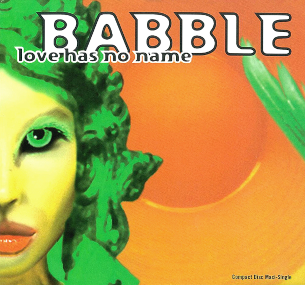
"Love Has No Name" is a song from British-New Zealand electronic dance music group Babble, which was released in 1996 as the sole single from their second and final studio album Ether. The song was written by Alannah Currie (lyrics) and Tom Bailey (music), and was produced by Bailey, Currie and Keith Fernley. It reached number 10 on the US Billboard Hot Dance Music Club Play chart.



















